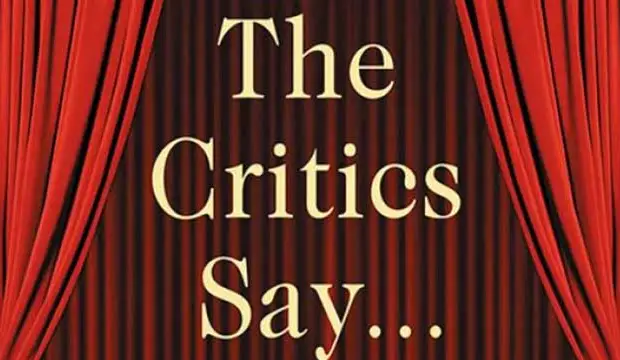By Kris Neely
America’s theater community is blessed to have some of the USA’s best critics and writers in the business. For example, our ASR critics have written for local, regional, and national theater publications!
The writing, critiques, and opinions of theater pros outside of the Bay Area are what I believe constitute “Other Voices” in the theater. With that in mind, I’ve decided that from now on, ASR will add some of those voices to a table at the end of as many reviews as practicable, much like this table of “Other Voices” for the play Fannie:
"Inspired by her life story and filled with her music, FANNIE is a hopeful rallying cry that honors the spirit of a true revolutionary."
Actors Theatre of Louisville
[the play is] "...welcoming to all people and highly entertaining. For those who know little about Hamer’s life, there is a willingness to inform. For those that do, there’s an impulse to celebrate the achievements of what turned out to be an extraordinary American life..."
Chicago Tribune
..."rich in memorable vignettes, just as the song-laden show abounds in energy, wit and aspiration."
Chicago On the Aisle
"...As Hamer ruminates on the problems of the 1960s — police brutality, victim blaming, gentrification, the education gap and voter suppression, among them — the unsettling parallels to life in 2020's deepen. Even before the play evokes Harriet Tubman and John Lewis, the message crystallizes: If these heroes fought for what’s right in the face of unspeakable turmoil and trauma, what’s your excuse for apathy?"
Washington Post
I’m doing this for a few reasons:
- First, now more than ever before, there is much competition for the mind of American entertainment-minded citizens: network television, cable television, Netflix, Disney, HBO, Apple TV, and on and on.
- Even movie houses are changing their pricing model to one that, in certain metro areas, might charitably be described as predatory.
- And then there’s the cost of theater tickets (more on that in a moment.)
Net-net: it can be challenging to sort out what’s (quite literally) worth watching and what should be passed on.
And returning to the issue of the cost of theater tickets, this point proves itself. Eventually, theater owners will realize there are limits to what folks will pay to see a play at a “Big Theater” or the community theater down the street. (In 2023, the average price of a ticket to a Broadway show is $189!)
Therefore, I believe adding additional reference material in the form of comments/extracts from critics outside the Bay Area has value to ASR’s readers.
Now some folks might ask if a version of, The Lion in Winter might be “different” at, say, Pittsburg Community Theater vs. the Steppenwolf Theater in Chicago, and the answer is “Yes, to be sure. Lights, props, type of stage, quality of actors, Equity vs. local actors, director’s interpretation of the play, even the quality of the audience seats — all these things and more mean two productions of the same show will be different. No question.”
But — generally speaking — the script is 99% the same.
Does this mean that if our “Other Voices” table authors say a given play is “amazing,” you will find it similar? No, to be honest, you may well hate it. Or love it. (The theater is a worthy home for the phrase, “Your mileage may vary.”)
But Mom and Dad can sleep better knowing that thumbs up or down, they went to see a play (and too often spending over $100 for the honor) knowing what our critics and other theater professionals think about the script.
Now all this additional writing, opinions, criticism, and input should not significantly impact your experience watching a play. What makes me say that?
Because I believe an informed audience is a better audience. Better at understanding a play’s plot(s), motivations, and themes. Better able to appreciate an actor’s interpretation of a role. Even better able to enjoy the technical skills at work in the theater.
Therefore I hope you’ll find value in these additional “Other Voices.” Thanks for your time and attention and for reading Aisle Seat Review.

Kris Neely
ASR Founder & Editor-in-Chief

